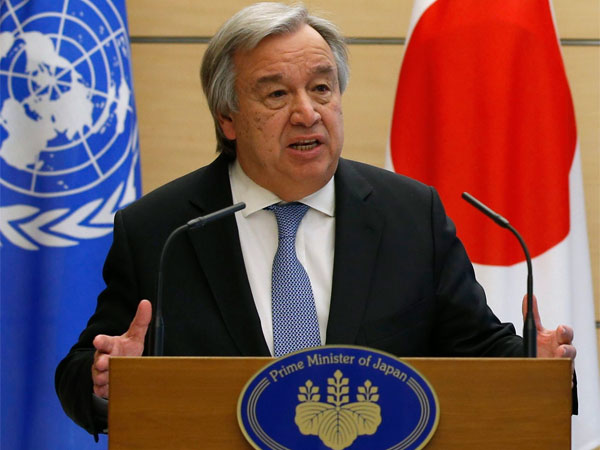Geneva: United Nations High Commissioner for Human Rights Tuesday lashed out at campaign by Indian media outlets against UN bodies and Secretary General UN over its Kashmir HR report as ‘puzzling’ and ‘wild claims’.
It said that UN will continue to try to engage with Indian and Pakistani authorities on HR issues and press for access to both Indian and Pakistan-administered Kashmir.
Spokesperson for the UN High Commissioner for Human Rights, Rupert Colville in a statement issued to press said that Indian media calling UN bodies report as “Nefarious conspiracy”, “Pakistan-authored report”, “fallacious”, “mala fide” are unfounded and baseless.
The maiden UN report on HR abuse in Kashmir had generated heated debate between India and UN itself to the extent that India called the UNHCHR of have ‘bias’ and Secretary General UN of over stepping his ‘mandate’.

“The UN Human Rights Office has a global mandate and works independently, with a well-established methodology, in its public reporting,” Colville stated in statement issued to press here.
UN Secretary General Antonio Guterres July 13, backed the international body’s human rights chief’s call for an independent international probe into HR abuse in Kashmir.
About HR report on Kashmir the spokesman said that the report contains 388 footnotes that detail all the sources that were used: these include official sources such as the Lok Sabha and Rajya Sabha – India’s parliament – as well as the Supreme Court of India, the Ministry of External Affairs, the Jammu and Kashmir Legislative Assembly, the Jammu and Kashmir State Human Rights Commission, the Union Ministry of Defence, the Chief of Army Staff and even a former Vice President. “Accusations that we used unverified information are thus rather puzzling,” Colville said.
The report was developed through remote monitoring, after the Indian and Pakistani authorities failed to grant us unconditional access to the region.
UNCHCR also said that it has been ‘deeply disappointed by the reaction of the Indian authorities’, who dismissed the report as “fallacious, tendentious and motivated” without examining it and responding to the very serious concerns about the human rights situation in Indian-administered Kashmir and Pakistan-administered Kashmir as laid out in the report.

Representational Picture
Colville also clarified that claim by ‘someone’ Zafar Bangash, that the High Commissioner was in constant contact with him, with the ‘inference being that he influenced the content of the report’ is ‘totally untrue’.
Indian media outlets had claimed that a photograph of the High Commissioner with three individuals from Pakistan-Administered Kashmir taken outside the Human Rights Council room in Geneva is “clear proof of the ISI’s [Pakistan’s intelligence agency] involvement.”
“The unsupported conclusion that this photo indicates complicity is tendentious and – along with other such wild claims — appears designed to discredit the report while avoiding any real examination of, and reflection on, its contents. Individuals often ask to be photographed with the High Commissioner, and he often politely obliges,” Colville said.
Colville said that they are disturbed by the ‘sustained attempts to distract and divert the focus away from the human rights violations on both sides of the Line of Control.’
The goal in drafting the report, colville said, was to assist the States and others to identify and address human rights challenges and to give a voice to all Kashmiris who have been rendered voiceless amid the deep political polarization.
“This is not about politics. It is about the human rights of millions of people in Kashmir. And we will continue to try to engage with Indian and Pakistani authorities on this and other important human rights issues, and press for access to both Indian-administered Kashmir and Pakistan-administered Kashmir,” Colville said.
